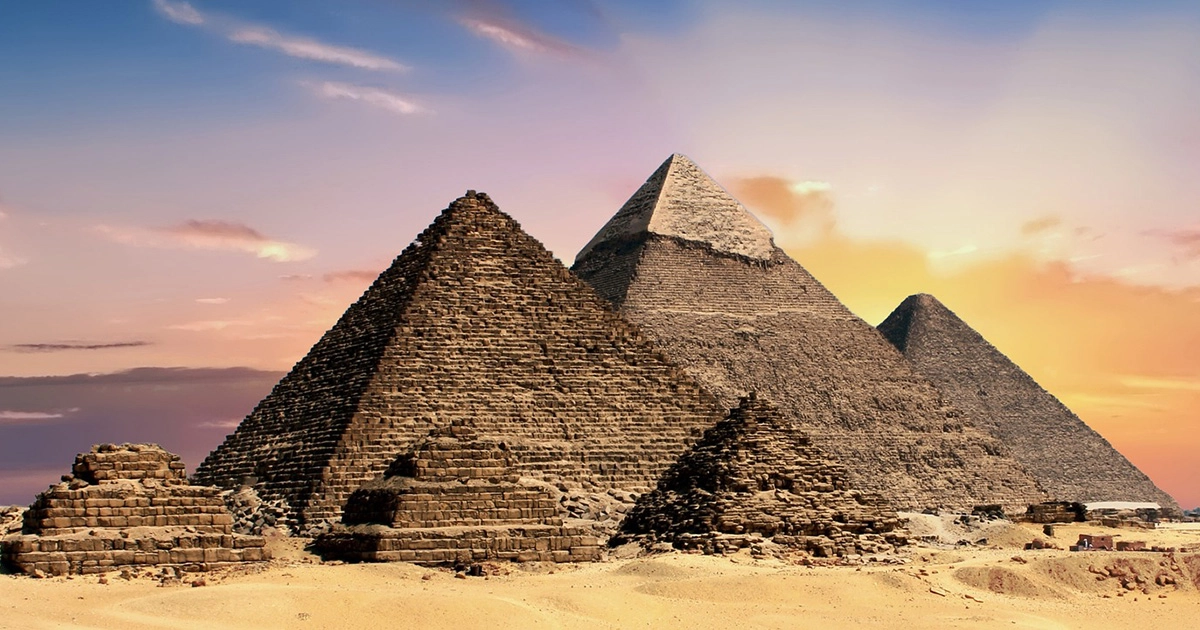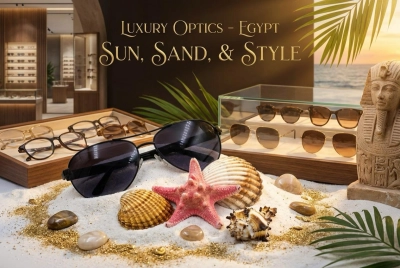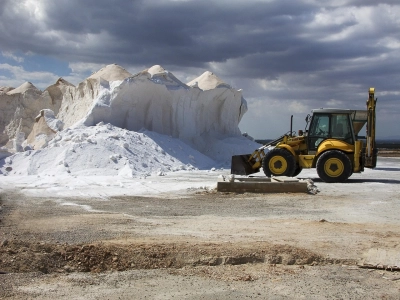Egypt
 Table of contents
Table of contents
Egypt is a country in Northeast Africa and the Middle East. Egypt is an ancient country and, at the same time, a modern Arab state with an extensive tourist infrastructure and rich cultural traditions. The Egyptian civilization and its unique buildings are a treasure in the treasury of world culture. In addition to ancient history and cultural attractions, the country boasts a variety of resorts, as well as a developed economy and a favorable climate for business development.
General information
The official name of the state is the Arab Republic of Egypt. The territory of the country is 1,001,450 km² (29th in the world). Egypt is the most populous country in the Middle East and the second most populous in the African continent with 100,704,000 people as of 2020. The ethnic composition of the country's inhabitants is 75-85% Arabs, 10-20% Egyptians, as well as Nubians, Bejas, Berbers and others.
The main part of the country's population is Muslims (mostly Sunnis) 79-90%, also Coptic Christians (Egyptians) 10-20%, other Christians about 1%. Secular legislation is based on Sharia — a set of norms of Muslim law.
The official language of Egypt is Arabic. At the same time, English and French are widely spoken.
The monetary unit of Egypt is the Egyptian pound. The Arab Republic of Egypt is administratively divided into 27 governorates. The capital of Egypt — Cairo is one of the largest cities in Africa. The construction of a grandiose, large-scale project is being completed — the new capital of the country (a territory of about 700 km², a promising population of about 5 million people, its own international airport) 45 km east of Cairo, which, in turn, should lose its functions as a capital. The transfer of the capital from Cairo to a city specially built for these functions, towards the Suez Canal, is associated with the overpopulation of the 20-million metropolis, the number of inhabitants of which will double within 40 years.
The largest cities in the country also include Alexandria (the main port of Egypt), Giza, Shubra el-Kheima, Port Said, Suez.
History, geography, culture, mentality
The history of Egypt and the Egyptian civilization is unique, formed over the centuries and one of the oldest in the world, it has more than 5 thousand years. Archaeological monuments in the fertile valley of the Nile River, including the pyramids of Giza, the Great Sphinx, as well as the Temple of Karnak, whose walls are covered with hieroglyphs, and the Valley of the Kings with the tombs of the pharaohs in the Luxor region, remind of its uniqueness. The country's capital, Cairo, is famous for the Mohammed Ali Mosque, built during the Ottoman Empire, and the Egyptian Museum, which exhibits the mummies of pharaohs and gilded wooden statues of Tutankhamun.
The settlement of Egypt began about 7-6 thousand years ago. The ancient Egyptian civilization left a huge mark on world history.
The reign of the pharaohs is usually divided into the Old Kingdom, Middle and New Empires. The reign of the pharaohs ended in 341 BC when Egypt was invaded by the Persians. A little later, the country was conquered by Alexander the Great, who expelled the Persians and founded the city of Alexandria.
At different times, Egypt belonged to different states and empires, experienced ups and downs. So, Egypt was part of Ancient Rome, belonged to the Byzantine Empire, then it was captured by Muslim Arabs, who included it in the Arab Caliphate and introduced the Muslim faith — Islam. Egypt achieved special power after the Mamluk dynasty came to power and joined the Ottoman Empire in 1517.
After the construction of the Suez Canal, Egypt attracted the attention of the British Empire, and the British occupation began.
In 1922, as a result of the national liberation movement, the independence of Egypt was proclaimed, led by King Fuad I. In 1953, Egypt was proclaimed a republic. An important step for Egypt was the nationalization of the Suez Canal in 1956.
Egypt borders on land with Libya in the west, Sudan in the south, the Palestinian Authority, Israel in the east. There is a maritime border with Jordan and Saudi Arabia. Egypt is washed by the Mediterranean Sea in the north, the Red Sea — in the east, which are interconnected by the Suez Canal — the largest artificially constructed canal, the shortest route from the Atlantic Ocean to the Indian.
The Nile River flows through Egypt — one of the longest rivers in the world (6671 km). This great river became the cradle of civilization in the region. The valley and delta of the Nile River accounts for about 4% of the territory of Egypt, while the majority (96%) is occupied by deserts. The country is rich in minerals: oil, gas, phosphates, iron ore, zinc, etc.
Egypt is a multicultural country where modern traditions confidently coexist with local customs.
Egypt is rich in its architecture. Many places in this country are listed as a UNESCO World Heritage Site. Ruins of ancient cities, majestic pyramids, unique burial complexes, temples and a number of other magnificent monuments of Egyptian civilization have been preserved since the ancient world.
The inhabitants of Egypt have oriental nobility. People actively help each other, collecting whole tips to solve problems. Egypt lives according to the traditions of the East, although the country does not have strict requirements for observing religious norms. The Muslim faith determines the rhythm of the life of the Egyptians. It is also worth considering a considerable number of Coptic Egyptians living according to Christian traditions. There are several points that you should pay attention to when visiting the country and contacting local residents:
- The Egyptians form their opinion of the person they meet based on how they greet them. It is customary for men to shake hands; the handshake must be strong, otherwise this greeting will be perceived as insincere. Men should not allow physical contact when communicating with the opposite gender — such a gesture can offend Egyptians. It is considered indecent to wave your hand to your friend from afar and interrupt people's conversation in order to say hello.
- In Egypt, even strangers are often greeted.
- If a situation happens when you have to refuse an Egyptian for some reason, do it with your hand on your heart. In this case, your "no" will not offend the interlocutor and express your gratitude to him.
- When communicating with the Egyptians, a closer distance was adopted than among the inhabitants of Europe. This should not be avoided, otherwise such behavior may be perceived with resentment — as if the interlocutor is unpleasant to you.
- Going to busy cities, remember the style of dress adopted in this country.
Power
Egypt is a democratic republic. The President is the head of state. Legislative power in the country belongs to the National Assembly. The head of government is the prime minister. The administrative-territorial structure of Egypt includes 28 governorates, each of which usually includes several cities and towns. The highest legislative body is the bicameral National Assembly.
Economy
Egypt is the most economically developed country in North Africa. The country is divided in half by the highly fertile Nile Valley, where most of the economic activity is concentrated.
The Egyptian economy has several strong pillars. These include energy resources, including oil; income from the Suez Canal; and a lucrative tourism industry.
The industrial facilities contribute over 50% of Egypt's annual gross domestic product (GDP). More than half of Egypt's total working population is employed in the service sector, including tourism.
Egypt's manufacturing sector annually accounts for about 1/3 of GDP. It includes firms producing textiles, foodstuffs, chemicals, pharmaceuticals, cement, metals and light industry products.
The Nile Valley is one of the most intensively cultivated and productive farming regions in the world. Cotton is the main export commodity. Egypt is also an important producer of crops, vegetables and fruits.
Crude oil and petroleum products are among the country's largest export commodities. Egypt also produces natural gas, salt, phosphates, iron ore and coal.
The country is a rapidly growing supplier of liquefied natural gas, which is exported. Hydropower is provided by the Aswan Dam.
Among the main export partners are the USA, Italy, Spain, Syria, France, Germany and Saudi Arabia. The Suez Canal is an important route for oil supplies to the Persian Gulf.
The main imports are machinery and equipment, foodstuffs, chemicals, wood products and fuels. The main import partners are the USA, Germany, China, France, Italy and Saudi Arabia.
Egypt maintains very significant economic ties (at the level of government contracts) with Russia.
Business climate
The dynamic growth of the Egyptian economy, its strategic geographic location, low labor costs, skilled workforce, unique tourism potential, significant energy reserves, a large domestic market, and the success of government reforms (including many privatizations) have contributed to the growth of foreign direct investment. Egypt has adopted an Investment Law which includes performance requirements for certain investment incentives, including labour-intensive projects and geographic location. The government has also created special economic zones with business-friendly rules: more liberal, more efficient governance, tax incentives, simplified registration and customs procedures, improved infrastructure, and so on.
Egypt is one of the founding members of the European Bank for Reconstruction and Development (EBRD), and during 2018-21. It was the largest country of operations (EBRD) in the Southern and Eastern Mediterranean region. In 2021, the National Structural Reform Program (NSRP) was launched. The NSDP focuses on structural reforms in the manufacturing, agriculture, communications and information technology sectors.
Investment climate
Egypt has experienced an investment boom since the 1990s. Liberalization of the markets and the maximum favorable treatment for foreign investment led to the fact that the economy grew by 5-8% per year. Now Egypt's investors are the countries of the Persian Gulf and the Arabian Peninsula, Western corporations and funds. Small and medium-sized businesses in Europe and Russia are also making significant investments in Egypt.
Egyptian legislation defines a number of guarantees and protective measures for foreign investors:
- the right to own land;
- the right to open accounts in foreign currency;
- freedom from administrative interference;
- the right to repatriate capital and profits;
- foreign investors are equal in rights and status to the citizens of Egypt;
- foreign investors may be granted preferential treatment with the approval of the Cabinet of Ministers;
- no administrative body can revoke or suspend licenses for investment projects without warning, due process and time to correct existing problems;
- foreign investors are guaranteed to receive a residence permit for the period of project implementation;
- investors have the right to transfer profits abroad without restrictions;
- foreign employees of companies have the right to transfer their remuneration abroad;
- the share of foreign labor can be up to 20% of the total number of employees of the enterprise.
In addition, the ARE has a number of incentive measures to attract targeted foreign investment:
- companies receive a 2% discount on the amount of customs duty for importing equipment and machinery. They are also exempt from paying stamp duty and charter registration fees, mortgages, loan agreements and notarization of land deeds related to their investment;
- deductions of up to 50% of taxable net profit are provided in accordance with the future investment card;
- The Egyptian cabinet may issue a decree on additional incentives (these may include subsidizing utilities, free allocation of land for strategic activities, etc.).
Companies that are created in the country for investment receive significant tax benefits.
The country's planning ministry wants to attract more foreign direct investment and is also negotiating a new loan with the International Monetary Fund to deal with the effects of skyrocketing food and fuel import bills.
Egypt promises to expand reforms that would reduce the role of the state in the economy.
The Abu Dhabi ADQ Wealth Fund and a subsidiary of the Saudi Arabian Sovereign Investment Fund have already invested about $3 billion in Egypt, acquiring state-owned stakes in well-known companies in deals backed by the Egyptian Sovereign Fund.
Egypt has also set up a pre-IPO fund that aims to restructure certain state assets and prepare them for the sale of stakes.
Business and investment support structures
Egypt in 2007 acceded to the OECD Declaration on International Investment and Multinational Enterprises. One of the areas of work is to promote responsible business conduct in the business community in accordance with the Guidelines for Multinational Enterprises. To ensure compliance with the Guidelines, the Egyptian Ministry of Investment has established a National Point of Contact (NCC) to deal with emerging disputes regarding violations of responsible business practices by multinational enterprises.
Investment issues are regulated by the General Organization for Free Zones and Investments under the Ministry of Investments of Egypt (GAFI).
The procedure for making foreign investments in the ARE is regulated by Law No. 72 of 2017 "On Investments", according to which foreign investors have equal rights with national businesses in matters of opening and registering companies.
The Egyptian state regulator in the field of investment is the General Organization for Free Zones and Investments (GAFI) under the Ministry of Investment and International Cooperation of Egypt.
Investors can obtain all required licenses through a one-stop shop at GAFI. Any entrepreneur or investor through GAFI can obtain the necessary local permits and licenses from ministries and government organizations to conduct business activities in Egypt.
The Russian-Egyptian Business Council (REDS) at the Chamber of Commerce and Industry of the Russian Federation is today an effective platform focused on the activation, development and strengthening of trade, economic, investment, information and cultural relations between the Russian Federation and the Arab Republic of Egypt.


81,108,038 ₺
27,620,575 ₺
153,447,639 ₺

49,208,345 ₺
569,780,828 ₺


 New artıcles
New artıcles

 REAB Services
REAB Services
 News
News
 Useful tip
Useful tip
